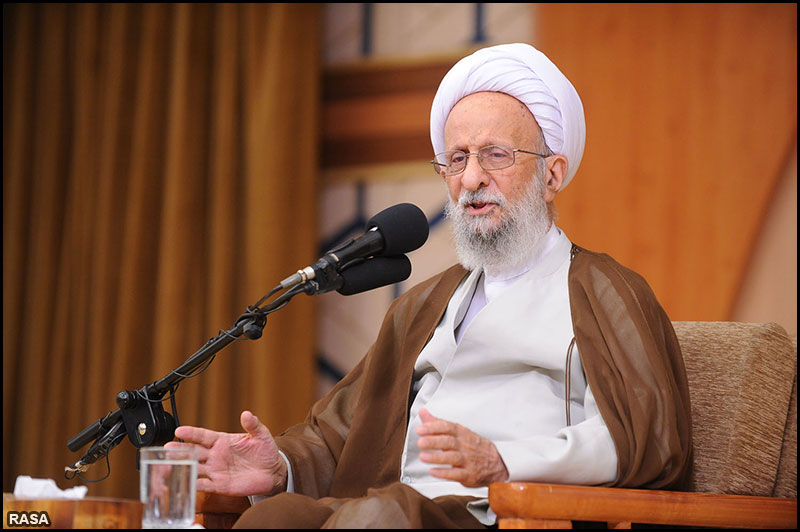
Rasa News Agency reports - Ayatollah Mohammad-Taqi Mesbah-Yazdi, head of the Imam Khomeini (RA) Educational and Research Institute, told a gathering of advanced clerics and seminarians in Qom that they should study and understand two books which are great treasures of Islam – Nahj al-Balaghah and Sahifah as-Sajjadiyah.
His Eminence explained that the blessings of the Islamic Revolution and the uprising led by Imam Ruhollah Khomeini and the efforts of his successor (Ayatollah Sayyed Ali Khamenei) has opened the doors for society to become aware of the concept of “wilayah,” in Islam – the divine guardianship of the Ahlul-Bayt (A). He added that the special characteristics of the life and struggles of Imam Ali (A) have many important and practical lessons which we can use and implement in the modern era. Even during the many battles in which the Imam (A) was forced into, he never neglected the importance of teaching Islam and the economic and cultural needs of his people.
In a part of his sermon, Ayatollah Mesbah-Yazdi described Nahj al-Balaghah and Sahifah as-Sajjadiyah as two of the most valuable, yet largely unknown treasures of Islam. These two books refer the social, cultural, political situations facing the Muslim community. He everyone to use and take advantage of these treasures and stated that these great sources of wisdom should not be studied by seminarians alone. He also warned that the behaviour of Shi’ah must be as Imam Ali (A) acted as the Imam (A) himself said that “you cannot be like me unless you are similar to me in your actions.”
Nahj al-Balaghah (The Peak of Eloquence) is the most famous collection of sermons, letters, exegesis and narrations attributed to Imam Ali ibn Abu Talib (A). It is known for its eloquent content and is considered a masterpiece of literature in Shi’ah Islam, third only to the Quran and prophetic narrations.
Sahifah as-Sajjadiyah (The Psalms of Islam) is said to be the oldest prayer manual in Islamic sources and one of the most seminal works of Islamic spirituality of the early period of Islam. It was composed by the fourth Imam, Ali ibn al-Husayn as-Sajjad (A).
111/112